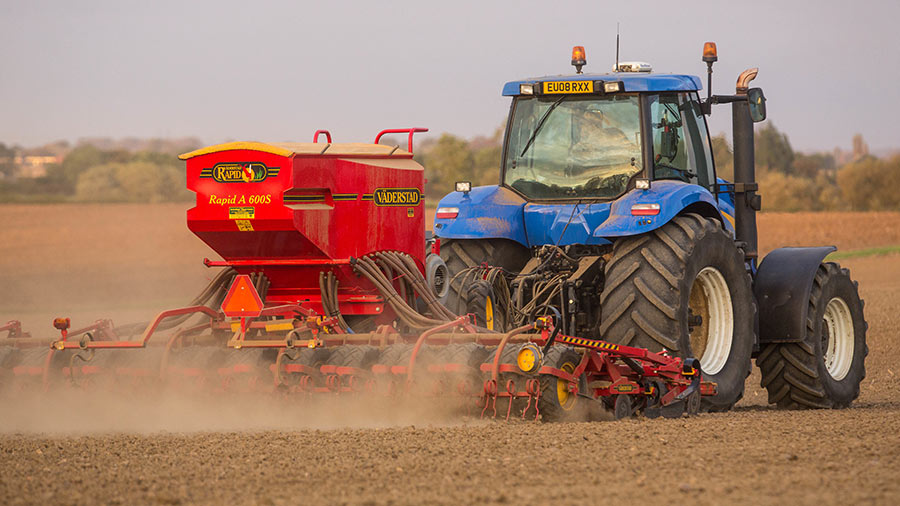£27m Farming Investment Fund launches with tight application window
 ©Tim Scrivener
©Tim Scrivener Millions of pounds of rural cash is up for grabs in England with the launch today (16 November) of the Farming Investment Fund (FIF).
Part of the government’s package of financial assistance to farmers as it phases out direct payments, the FIF will provide £27m of grants to pay for new equipment and infrastructure that improve efficiency and deliver environmental benefits.
See also: Trees can earn more than wheat under new planting scheme
Farmers will be able to claim up to £25,000 in the first application window of the Farming Equipment and Technology Fund, and draw up to £50,000 over the lifetime of the scheme. In comparison, its predecessor, the Countryside Productivity Small Grants scheme, paid £12,000 to each application over its lifetime.
There are also more items on the list – 119 compared with 87 previously – which includes slurry separators, direct drills, slurry application equipment and rainwater harvesting equipment; many of these additional items are aimed for the first time at the forestry and horticulture sectors.
Each piece of equipment carries a set price, so, in the case of a slurry separator, for example, the farmer will be paid £7,613 regardless of what it costs them to buy.
Smaller items, such as solar-powered electric fences, water treatment systems that use ultraviolet light, and cameras for monitoring livestock, are also on the list.
Second fund
The total fund will be shared with a second strand – the Farming Transformation Fund – which will cover more substantial technology. It will initially focus on water management, with grants available to improve water use on farms for things such as crop irrigation and constructing on-farm reservoirs.
Paul Dennison, senior associate director at land agent Strutt & Parker, said the level of grants was encouraging.
“It is a bigger slug of cash than we saw under the previous scheme,” he said. But the cash was coming from the Basic Payment Scheme (BPS) and would not “fill a hole” in a trading business resulting from the loss of that direct payment, he added.
Also, at a maximum of £25,000 per application, the scheme may meet the cost of only 1,080 applications.
Mr Dennison said: “It will pay for equipment that the farmer would hope would make or save them money, because that is what the scheme is there to do, but it is not going to be a replacement for the BPS.”
The deadline for applying to the Farming Equipment and Technology Fund is 7 January 2022 while for the Farming Transformation Fund there will be an online eligibility checker, with projects that score highly enough against the scheme’s objectives invited to make a full application.
The initial deadline for this is 12 January 2022 and the deadline to complete applications is 30 June 2022.
The NFU is concerned about these deadlines.
NFU vice-president Tom Bradshaw said the application windows for both schemes were tight and the current disruption to supply chains, as well as the difficulty getting planning permission for building reservoirs, could lead to delays.
“It’s vital that farmers make their applications as quickly as possible and, if accepted, give themselves as much time as possible to make the necessary arrangements,” he said.
